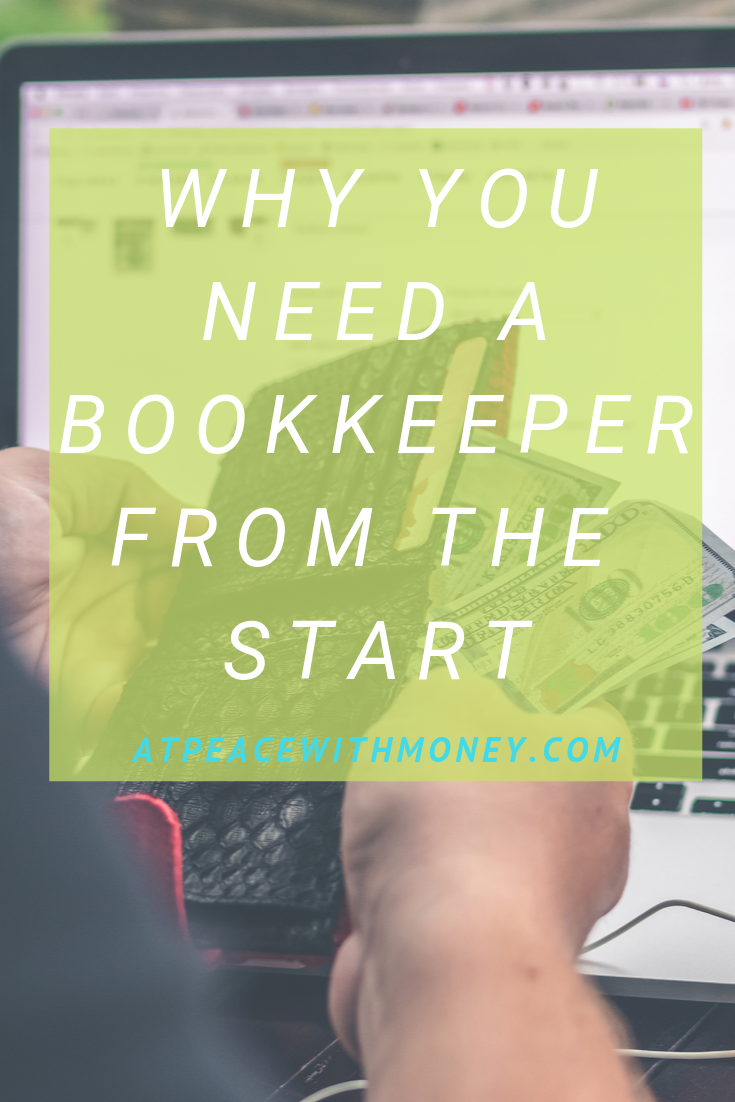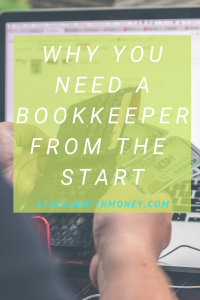Two Helpful Tax-Time Solutions to Implement Now

Planning ahead for tax season pays off. Whether you’re chugging along on this year’s taxes or all done, here are a couple tips you can apply to prep for tax time, any time of year.
Set Money Aside Ahead of Time
I’ve spoken with many business owners who’ve told me they regretted not setting aside money for taxes. Some also tell me they were initially surprised by the additional self employment tax. Clients often come to me after they’ve been hit with the tax bill. At this point, we have to pay off the tax debt and save for this year’s taxes. Doing both is tough, and can make a real financial mess for new business owners.
To solve this problem, I recommend two things. First, work with a tax preparer or bookkeeper who will help estimate a percentage to be held out for taxes. You can read more of my advice about working with a bookkeeper here. Putting money aside will help avoid that nasty surprise. This can also be a precursor to implementing the Profit First system, which is designed to keep your business prepared to pay its expenses, and pay you a fair wage.

If you want to go the extra mile, you can also read my article 5 Steps to Prepare for Tax Time. Although recovery from this type of situation needs to be thorough, it’s a chance to implement new and better systems and get your business organized.
Learn to Read Your Quickbooks Reports
Bookkeeping is essentially a simple process, but it requires attention to detail. Whether you DIY your bookkeeping or work with a professional, hours can be saved by learning to read your QuickBooks reports. This can help you double check whether you’re entering everything correctly, or whether there’s any mistakes. Sometimes when I work with clients, we have a big mess on our hands that can be traced back to a few minor errors. Reading your reports regularly helps prevent this! If you’re interested in learning more, I offer QuickBooks trainings and love helping small business owners understand their finances better.
If you enjoyed this article and would like more insights into your business finances, subscribe to my newsletter! You’ll receive my weekly blog posts along with a monthly tailored newsletter that includes relevant financial tips for small business owners.






 or for expansion. You can read more about the
or for expansion. You can read more about the 



 To solve this problem, I recommend two things. First, work with a tax preparer or bookkeeper who will help estimate a percentage to be held out for taxes. You can read more of my advice about working with a
To solve this problem, I recommend two things. First, work with a tax preparer or bookkeeper who will help estimate a percentage to be held out for taxes. You can read more of my advice about working with a 


 If you’ve already priced your products and wound up in a similar situation to the woman above, you can still double back and figure out your true income targets and prices. The real challenge comes in actually implementing a rate change. Before you do this, it can be helpful to
If you’ve already priced your products and wound up in a similar situation to the woman above, you can still double back and figure out your true income targets and prices. The real challenge comes in actually implementing a rate change. Before you do this, it can be helpful to 


 Finally, once you hire a professional, instead of just taking your best guess yourself, you may find you’re more relaxed about the state of your business. The value of feeling at peace with money is not to be understated.
Finally, once you hire a professional, instead of just taking your best guess yourself, you may find you’re more relaxed about the state of your business. The value of feeling at peace with money is not to be understated.